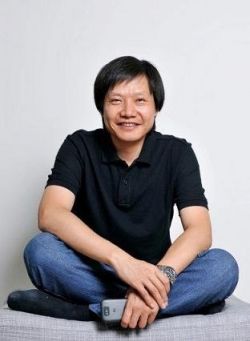Difference between revisions of "Lei Jun"
imported>Ciic |
imported>Ciic |
||
| Line 9: | Line 9: | ||
Xiaomi, whose name means "millet" in Chinese, was founded in April 2010 by Lei and his friends in Zhongguancun, Beijing's technology hub, which has been called "China's Silicon Valley." The smartphone company has surpassed Samsung to become China's leading cell phone vendor, claiming 30 percent of the country's market share in the third quarter of this year. | Xiaomi, whose name means "millet" in Chinese, was founded in April 2010 by Lei and his friends in Zhongguancun, Beijing's technology hub, which has been called "China's Silicon Valley." The smartphone company has surpassed Samsung to become China's leading cell phone vendor, claiming 30 percent of the country's market share in the third quarter of this year. | ||
| − | Xiaomi, which didn't release its first smartphone until 2011, is already planning to expand into foreign markets including Russia, Brazil, and Mexico | + | Xiaomi, which didn't release its first smartphone until 2011, is already planning to expand into foreign markets including Russia, Brazil, and Mexico in late 2014. |
[[Category: People]][[Category: Business]][[Category: Entrepreneurs]] | [[Category: People]][[Category: Business]][[Category: Entrepreneurs]] | ||
Revision as of 03:24, 20 November 2014
Lei Jun (雷军) is the founder and CEO of Chinese smartphone manufacturer Xiaomi, currently the world's third-largest smartphone maker after Samsung and Apple.
Lei usually wears a black shirt and blue jeans like Steve Jobs did, and much of his phone's design shares similarities with Apple products. But the ideas behind his sales and marketing edge are anything but imitative.
"Instead of brandishing phones' high-cost luxury appeal like that Cupertino company," Fast Company wrote in February 2014, Lei "sells them in buzz-generating flash sales at razor-thin margins, then takes advantage of revenue streams provided by software."
Xiaomi, whose name means "millet" in Chinese, was founded in April 2010 by Lei and his friends in Zhongguancun, Beijing's technology hub, which has been called "China's Silicon Valley." The smartphone company has surpassed Samsung to become China's leading cell phone vendor, claiming 30 percent of the country's market share in the third quarter of this year.
Xiaomi, which didn't release its first smartphone until 2011, is already planning to expand into foreign markets including Russia, Brazil, and Mexico in late 2014.
